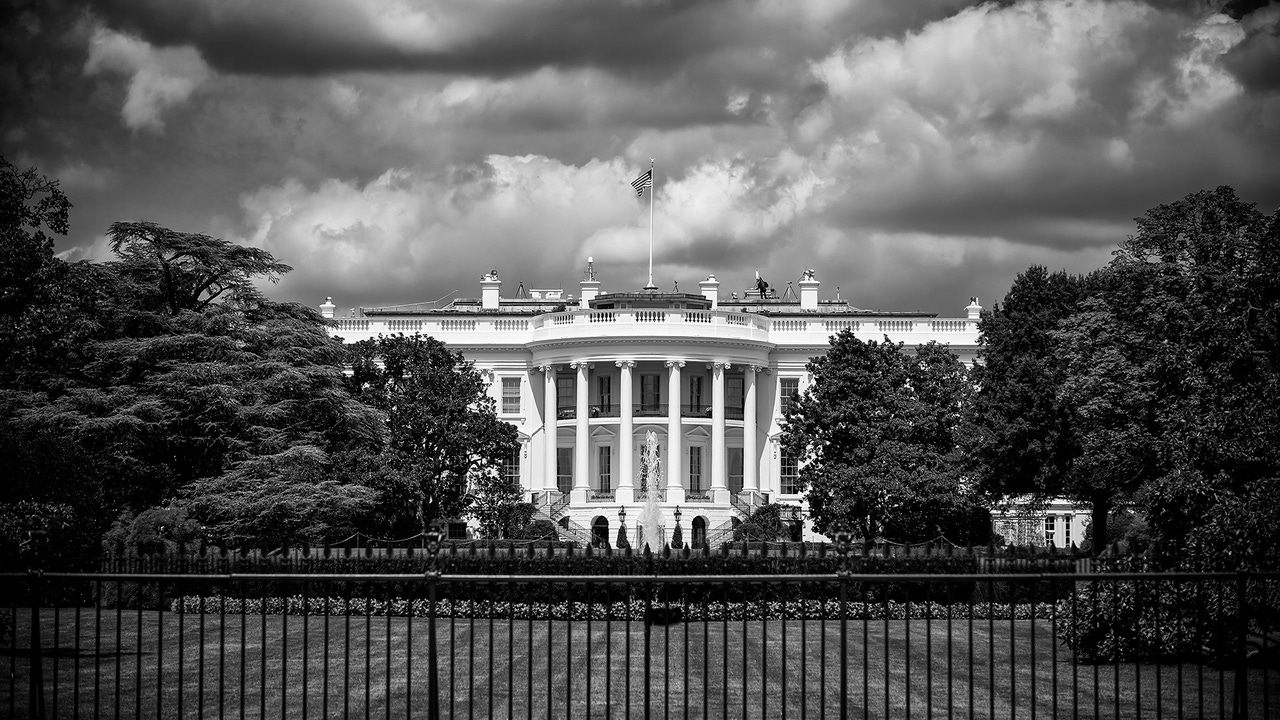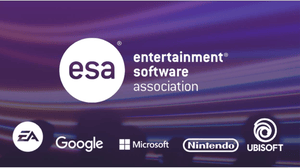
At a Glance
- A political strategic playbook from conservative think tank The Heritage Foundation has gone viral online.
- The document, referred to as "Project 2025," details goals for the possible next US presidency—and how to achieve them.
- Project 2025's goals include rolling back overtime protections, undoing civil rights gains, and possible media censorship.
In the last few weeks you may have heard of a document known as "Project 2025." Fully known as "The Project 2025 Presidential Transition Project," it is a document created by a conservative nonprofit think tank called The Heritage Foundation. The project's aim is to establish policy goals for the possible next presidential administration under Donald Trump and the means by which to achieve them, authored by political insiders with past and present affiliation with the candidate.
An external nonprofit organization posting and promoting such a plan is unusual on its face, even if its contents echo the policy platforms of Republican Party elected officials for at least the last two decades. Its plans to radically rewrite laws around taxes, LGBTQ rights, regulation, and more are not dissimilar to the policies of many prior administrations.
Additionally, 501(c)(3) nonprofits are prohibited from participating in political campaigns by the IRS, and some have questioned if its championing of this project runs afoul of tax law.
What's even more unusual is how conversation around Project 2025 has gone widely viral. Thanks in part to comedian John Oliver and extremely due to comments made by actor Taraji P. Henson, Americans are now closely scrutinizing how this plan may impact their lives.
Many of those Americans are in the world of video game development. We took a look at Project 2025's ambitions to see how it could impact the game development community. The results were disturbing.
Game developers should know that Project 2025 contains implications for possible media censorship, worsening health and well-being of workers, and drastic threats to gender and racial equality in an industry still struggling to close decades of unconscious discrimination.
Project 2025 includes "transgender ideology" under the definition of "pornography"
In Project 2025's foreword, authored by Heritage Foundation president Kevin Richardson, PhD, the organization makes an explicit connection between supporting transgender rights and the act of producing pornography. "Pornography, manifested today in the omnipresent propagation of transgender ideology and sexualization of children, for instance, is not a political Gordian knot inextricably binding up disparate claims about free speech, property rights, sexual liberation, and child welfare," he writes, adding that it has "no claim to First Amendment protection."
This is a wide-reaching expansion of the definition of pornography. He does not mince words as to what action the government should take. He follows this by stating pornography should be "outlawed," and calls for harsh punishments for any involved in its creation or dissemination.
"The people who produce and distribute it should be imprisoned," he continues. "Educators and public librarians who purvey it should be classed as registered sex offenders. And telecommunications and technology firms that facilitate its spread should be shuttered."
It is here that we can draw a line between this proposed plan and video game development. Such restrictions may outlaw gender-inclusive character creators like those seen in Cyberpunk 2077, Baldur's Gate 3, or The Sims 4 in the United States.
This may also lead developers to stop including transgender characters in games like Apex Legends' Bloodhound and Catalyst. It is unclear if the mere representation of a transgender individual would violate the terms, but studios fearful of litigation would have reason to deny their creation altogether.

Image via Respawn Entertainment/Electronic Arts.
With regards to its singling out of "technology companies," much is made further down the document in a section on the Federal Communications Commission authored by former Trump administration FCC chairman Brendan Carr. Carr writes that Congress should set about scrapping the current implementation of Section 230 of the Communications Act. Section 230 is legally understood to absolve telecom providers and platform holders of broad responsibility for content transmitted through their services.
Altering its language would allow agencies to hold internet providers, social media platforms, and digital storefronts for the content they share. This could lead to companies who own said services to apply downward pressure on each other to preemptively enforce said censorship.
We should also note that expanding the definition of pornography in vague and uncertain terms may mean video games featuring sexualized characters of any type could be targeted by such legislation. Developers may be tasked with adhering to something like the Hays Code, a self-imposed form of censorship authored by Will Hays in 1934 meant to stave off congressional legislation against the film industry.
Civil rights protections for American game developers in the workplace may suffer
Americans who require access to abortion or protection from discrimination on the basis of race, gender, or sexuality may suffer greatly under Project 2025. The plan takes a multi-pronged approach to targeting said protections, and Richardson writes that this begins with deleting the terms sexual orientation and gender identity ("SOGI"), diversity, equity, and inclusion ("DEI"), gender, gender equality, gender equity, gender awareness, gender-sensitive, abortion, reproductive health, reproductive rights, and any other term used to deprive Americans of their First Amendment rights out of every federal rule, agency regulation, contract, grant, regulation, and piece of legislation that exists."
The effects of said action may already be seeping into companies that contract with the federal government. Recently laid-off DEI workers at Microsoft raised the alarm bell that the Redmond-based corporation may be shuttering DEI efforts in advance of a possible second Trump administration.
A reactionary backlash against DEI initiatives has also fueled renewed harassment campaigns against marginalized groups and their advocates in game development. The campaigns' furor has grown so absurd that even Ubisoft CEO Yves Guillemot took time to condemn the racist reaction to the dual leads of Assassin's Creed Shadows.
In a section authored by former chief counsel to the President-Elect Trump Transition team Jonathan Berry, he writes that the Department of Labor and related agencies should cease enforcing what is known as the "disparate impact" standard in determining the existence of racial discrimination in the workplace. This standard is shorthand for explaining how regulatory agencies determine if unintentional or covert discrimination has been enabled through rules or policies that disproportionately target people of different racial groups, particularly minorities.
Eliminating it would likely empower companies to willingly or inadvertently discriminate against workers so long as they do not specify which protected groups they are targeting.
Berry also explicitly calls for the Department of Labor to "rescind regulations prohibiting discrimination on the basis of sexual orientation, gender identity, transgender status, and sex characteristics." Employers would be free to discriminate against LGBTQ+ workers with no intervention by the federal government.
Finally, developers should know that Project 2025's assault on abortion access impact benefits studios provide in the United States. Berry's section of the Mandate for Leadership states that the potential next presidential administration should "keep anti-life 'benefits' out of benefit plans."
The lever to eliminate said benefits would be pulled through a judicial reinterpreting of Employee Retirement Income Security Act of 1974 (ERISA). The law currently denies states the ability to ban companies from providing abortion coverage in their medical benefits.
"ERISA should not be allowed to trump states’ ability to protect innocent human life in the womb," writes Berry. "Congress and DOL should clarify that ERISA does not preempt states' power to restrict abortion, surrogacy, or other anti-life 'benefits.'"
The successful restricting of abortion access has prompted backlash from game developers. Many already worry that if studios or publishers set up new offices in states with abortion bans on the books, they will have to choose between their careers or their personal safety when considering where they can work.
The combined eliminations of these protections risk exacerbating inequality in the video game business. If employees cannot fight discrimination or receive equal access to healthcare, they will not have the same opportunities as many of their colleagues when seeking work in the field of game development.
Proposed overtime regulations in Project 2025 could empower more crunch
The last decade has been marked by workers at companies large and small advocating for an end to "crunch," commonly understood as periods where developers work intense extra hours to meet harsh deadlines.
The Game Developers Conference State of the Industry survey indicates that while developers still experience crunch, its presence in the industry has slowly declined in response to said advocacy. Those gains could be wiped away by proposals in Project 2025.
These proposals attack overtime benefits from multiple angles. In his chapter on the Department of Labor, Berry argues that overtime laws are too restrictive on companies who wish to offer other benefits like reimbursement for education, childcare, or free meals.
As he states, "overtime requirements may discourage employers from offering certain fringe benefits such as reimbursement for education, childcare, or even free meals because the benefits' value may be included in the 'regular rate' that must be paid at 150 percent for all overtime hours."
Elsewhere, Berry writes that overtime laws should be adjusted to offer "flexibility" to "employers and employees" to calculate overtime over two-or-four-week periods. "This would give workers greater flexibility to work more hours in one week and fewer hours in the next and would not require the employer to pay them more for that same total number of hours of work during the entire period," he says.

Image via Adobe Stock.
This means that if an employer were to demand developers work 60 hour weeks to hit a milestone, they would be able to not pay overtime so long as equivalent time off was offered in the weeks after. Such a regulation does not account for the strain that excessive work hours can inflict on workers, even in the software industry.
Elsewhere, Berry writes that home offices should not be considered workplaces under OSHA guidelines, and employees should not be entitled to overtime protections while working from such locations.
Finally, Project 2025 seeks to reverse changes to the "overtime threshold" implemented by President Joe Biden's administration. Earlier in 2024 the president announced it would raise the income threshold for non-exempt salaried workers to be eligible for overtime. It was raised to include workers making up to $58.6k annually, up from $35.5k under the previous administration. About 4.3 million Americans benefitted from this expansion. This expanded range band covers many junior positions in the video game industry.
Berry states that the threshold under the previous administration was "high enough" to cover "line workers in lower-cost regions," an eyebrow-raising implication that only certain types of workers deserve overtime protections.
Take-home pay for working overtime could also be reduced under Project 2025. Berry advocates that Congress should clarify that the 'regular rate' for overtime pay is based on the salary paid rather than all benefits provided." In other words, if your overtime pay was calculated as 1.5 times your total pay including benefits, you would now only receive 1.5 times your base salary.
Project 2025 proponents may point out these changes would be counterbalanced by proposals that would expand accumulation of paid time off based on overtime. This again does not account for the physical and mental strain that overtime can exert on the human body.
It isn't unreasonable to expect that if the costs of implementing crunch are lowered, more American employers would gladly push for employees to work more and more hours per week.
Project 2025 is an attack on the video game industry
A deeper examination of Project 2025's impact on the game industry would need to explore how it brutalizes the civil rights of undocumented immigrants while slashing immigration rates for workers on visas. It would also have to account for how proposed changes to tax law would increase taxes on workers to subsidize cuts to corporate tax rates.
But to quote political reporter Dave Wasserman, "I've seen enough." The Heritage Foundation's ambitious plan for a possible Trump Administration is nothing less than an all-out assault on workers of all stripes, and particularly harmful for the creative and inclusive community that makes game development a joyful vocation.
I call out the word "joyful" here because joy is a fundamental element of the art and business of making video games. In one way or another, joy is what we offer players. We create that joy through creativity and collaboration, higher-order skills that suffer when one fears for their civil rights, their health, or their life.
The threats of Project 2025 to the well-being of Americans everywhere should be front-and-center in readers' minds, but it's also worth noting how joyless its authors are. The way these people write, you realize they know nothing about the relief of embracing your gender identity or sexuality, the sense of comfort that comes with being in safe spaces at work or out in the community, or the satisfaction of rest that follows a hard 40 hours of work.
This document is written by miserable people who are upset that Americans have many ways to find happiness and satisfaction. They seem to be fueled by the same self-hatred powering reactionary campaigns targeting game developers and other artistic communities that have reared their heads since Gamergate in 2014. I half-expected to turn the page and read complaints that "Disney's woke agenda ruined Star Wars." That's how bitter and awful it is!
It's inevitable that the authors of Project 2025 would promote policies so harmful to developers and players alike. The only question remaining is if they will have the opportunity to implement them.
GDC and Game Developer are sibling organizations under Informa.
About the Author
You May Also Like









